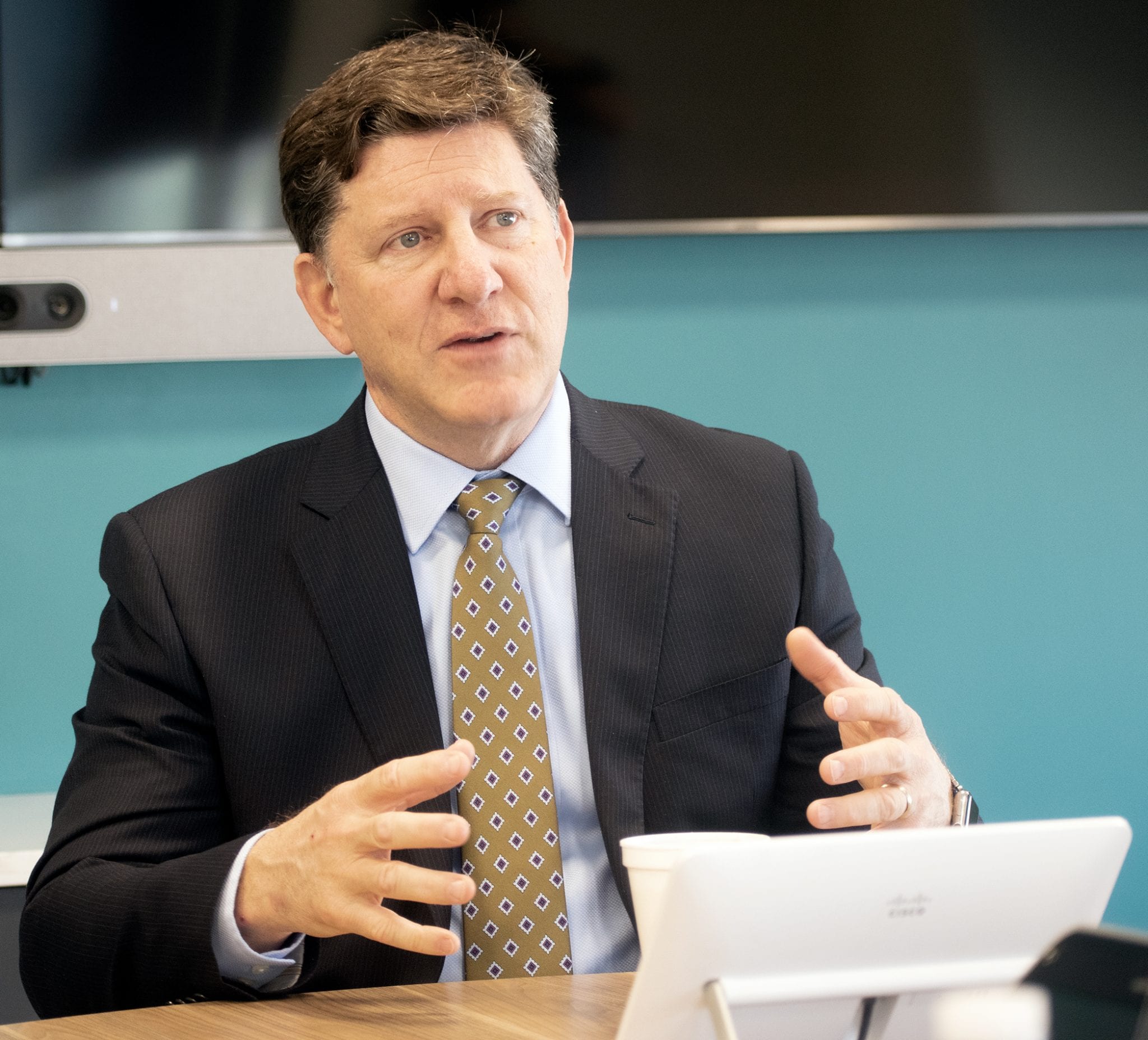Three days on the job as CEO/president of the Tennessee Valley Authority, Jeff Lyash on Wednesday afternoon was fielding media questions in the 8th floor conference room of TVA’s new office space at 100 Peabody Place in Downtown Memphis.
Lyash, who succeeded William D. Johnson, is the former president/CEO of Ontario Power Generation (OPG) Inc., one of Canada’s largest electrical-generating companies. His early visit to Memphis was about getting grounded.
Recently, TVA named Mark Creech to fill the new role of executive director for Memphis. And while Lyash was not involved in the fashioning of the position or the selection of Creech, he said the changes are good ones.
“I think it is important for TVA to have enough of a presence in each of these communities, Memphis being one, to understand what the issues are very clearly and to look for ways for TVA to be a positive force in solving those issues,” he said.
“One of the ways you have to do that is get on the ground. And that, fundamentally, is what I am doing here today. Talking to people, listening, trying to make sure I understand. So that we can find the best way for TVA to support Memphis.”
With getting grounded in Memphis as the backdrop, Lyash was asked this:
Q: To what degree will you be aware of the African-American population and how will you try to address their concerns in any kind of specific way? Is that something you would be concerned about?
A: We (TVA) don’t have unlimited scope. We have a focus we have to maintain because we deliver some things to the citizens and we have to be very good at it, very focused. But I think we also have an obligation to understand what is going on in the communities we serve and even tone it to the community we serve so that we can try to reflect that in the way that we do business.
Lyash referenced his lunch with Ron Walter, a new member of the TVA Board of Directors and the president and general manager of WREG. Walter is African American.
“My question to him was what problems Memphis is struggling with,” Lyash said. “What would make a difference? And is there any role that TVA can appropriately play in that?”
The ensuing conversation, Lyash said, encompassed education and workforce development, economic development and TVA’s track record in providing such and where the focus should be to do better. It also involved energy efficiency and what could be done to strengthen some programs to help people lower their bills.
“Memphis has to make a decision about what your energy future looks like and whether TVA is a part of that. And you will make a good decision if you are fully informed,” Lyash said.
“But I do want to make sure that you have all the right information so that you can make a good decision. Not just a decision that is good for you for a year or two years. In the energy business you have to think about 20 or 30 years because it takes a while to play out.”
It’s also important for Memphians to know the value that TVA now is delivering, he said.
“Because whatever you decide to do, you are going to trade that basket of value for something else. You should understand what it is you have so that you can compare it to what it is you are getting.”
TVA delivers some of the highest reliability in the power industry in the U.S. and does so at some of the lowest prices and in a way that has a positive effect on the environment, Lyash said.
Lyash was asked whether environmental cleanup at the old Allen Fossil Plant, which closed in 2018, would be impacted if Memphis chose to stop doing business with TVA.
“No,” said Lyash. “When it comes to the Allen site, we are going to do the right thing….
“I don’t think the Allen plant has affected the Memphis Sand, the aquifer here. There is some contamination apparently in the upper (aquifer)… that was discovered when some wells were built. It is unclear to me what the source of that is. I know there has been a presumption that it is coal ash but I don’t know that to be the case. I’ve dealt with a number of these issues. There are lots of sources for that sort of thing.
“For me, the point is not about exactly how did it get there and when. The point is what do we do now?”
TVA, he said, is evaluating removing the coal ash and disposing of it in a permitted facility in the long term.
“That’s a process that takes a while. We have an environmental impact statement we’re preparing. … We have to be permitted. And then we have to approach how we do that carefully so that you don’t create a bigger problem trying to solve the problem that you have.”






